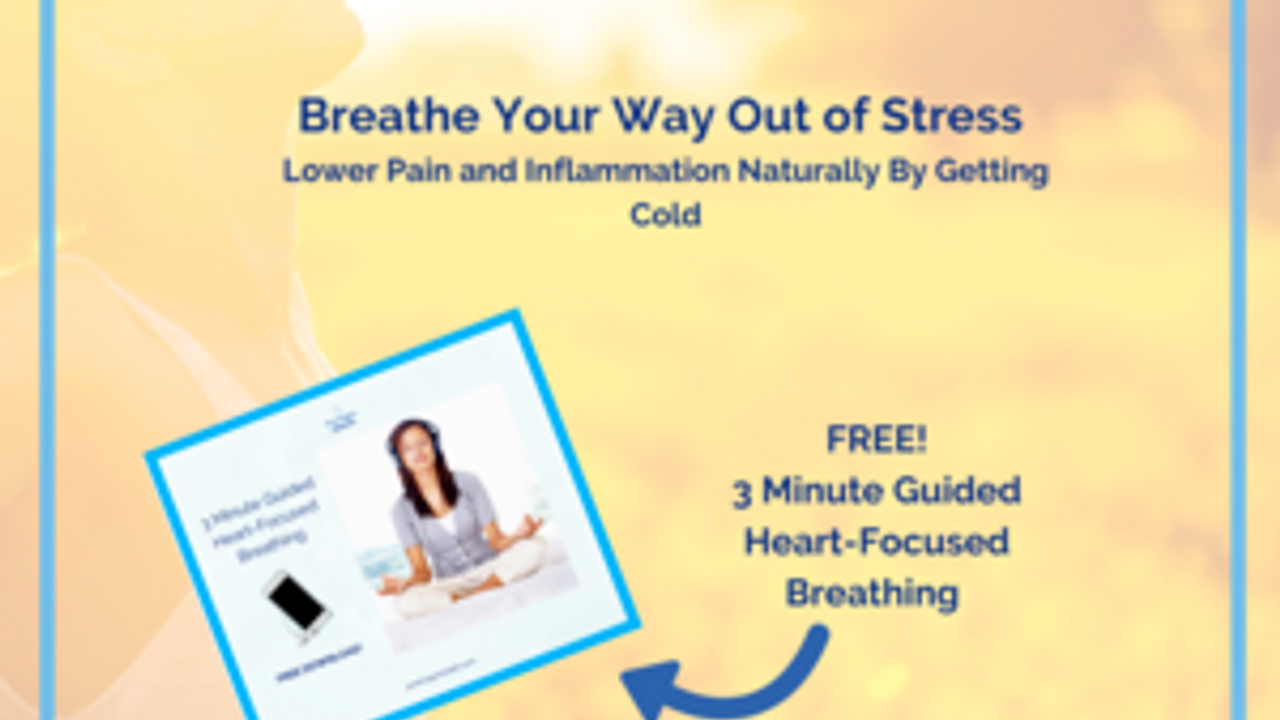
Breathe Your Way Out of Stress
Recently I’ve been doing regular polar dips. Water in Newfoundland is cold in February. I’ve been doing this because I know the health benefits, including lowering pain and inflammation, are well studied and backed by science.
Still, when it comes down to actually doing it, it’s not easy. Right before dipping I get clammy and my heart starts to race.
Taking the plunge is definitely mind over matter.
A technique that helps is breathwork. I know that Wim Hof, the Iceman, teaches people a particular breathing technique to help people maintain a core body temperature.
I’ve been trying to slow down try breathing and I find it helps relax me as I prepare to dip.
It turns out that this wasn’t a bad strategy, but there’s an even better one.
I listened to a podcast this week talking about how to lower stress with breathing by altering your heart rate.
The podcast show was The School of Greatness with Lewis Howes. His guest on this particular episode called Unlocking the Power of Your Mind was neuroscientist, Dr. Andrew Huberman.
I thought it was interesting how Dr. Huberman talked about two types of stress: hyper-alert or fatigued stress. In hyper-alert stress, you feel agitated and like the world is moving slowly. When you are in fatigued stress you are tired, everything feels overwhelming and the world seems to be moving too quickly.
The type of stress I feel right before taking the polar plunge is definitely hyper-alert stress.
Replacing stressful thoughts with more calming ones is a great strategy … unless you can’t. Like right before plunging into cold water, telling my self to remain calm isn’t that useful.
It’s not always easy to just “calm down” in the moment. That’s when Dr. Huberman suggests it’s better to use a physiological, rather than mental, process.
There’s a nerve, called the phrenic nerve, that runs from the diaphragm to the brain. Dr. Huberman suggests tapping into this nerve to lower stress.
When we inhale, the diaphragm moves down. The heart gets a little bit bigger and the blood moves a little bit slower. A signal goes to brain saying the blood is slowing down and then the brain signals to the heart to speed up.
When you exhale, the diaphragm moves up, the heart gets smaller, there’s more blood flowing and so the brain tells heart to slow down.
To lower stress and become more alert, make inhales a little more vigorous or longer than the exhales. Longer or more vigorous exhales will slow down your heart rate and make you less alert.
If you feel hyper-alert, do a few breaths emphasizing the exhale, long slow exhale or sigh.
If you have fatigued stress and feel overwhelmed, the key is to do a few breaths emphasizing the inhale. More vigorous or longer inhales will increase the heart rate so you feel more alert.
According to this, the best strategy for me to use right before polar dipping is to take long, slow exhales. This will help me feel calm by slowing down my heart rate.
These techniques are not meant to be used on a continual basis, but for short periods, just a few breaths, to help you breathe your way out of stress.
Breathwork has been around for thousands of years in yoga practices, so definitely not something new.
But if you do feel stress, this is another tool in your toolbox.
A great way to feel more peaceful is with heart-focused breathing - so simple, yet effective! I have a great free resource for you to implement TODAY to help you feel more relaxed and calm. It’s an audio file you can download to guide you through 3 minutes of heart-focused breathing to help you feel peaceful and calm. Click on the image below to receive it.
Get started with lowering pain and inflammation with my free Release with Peace Audio Bundle




